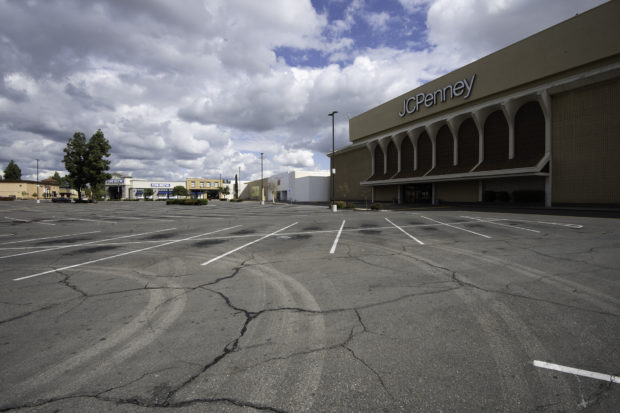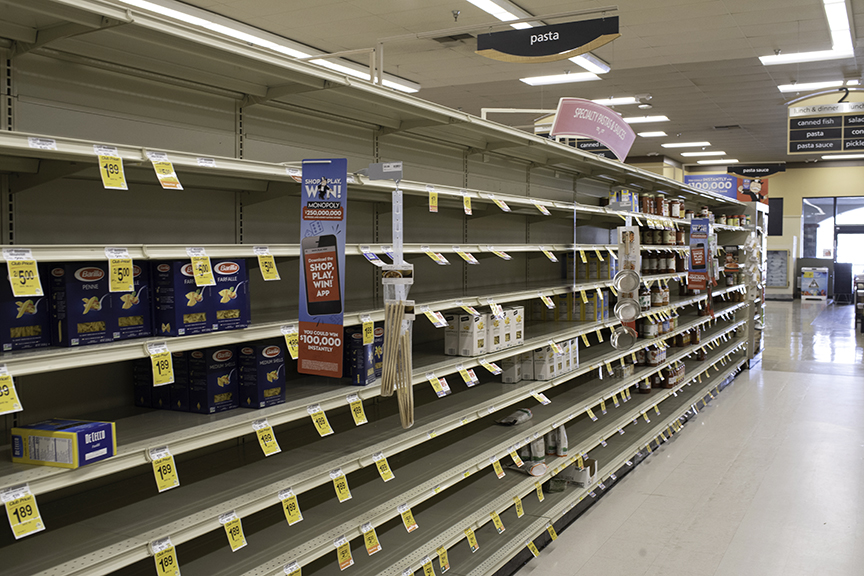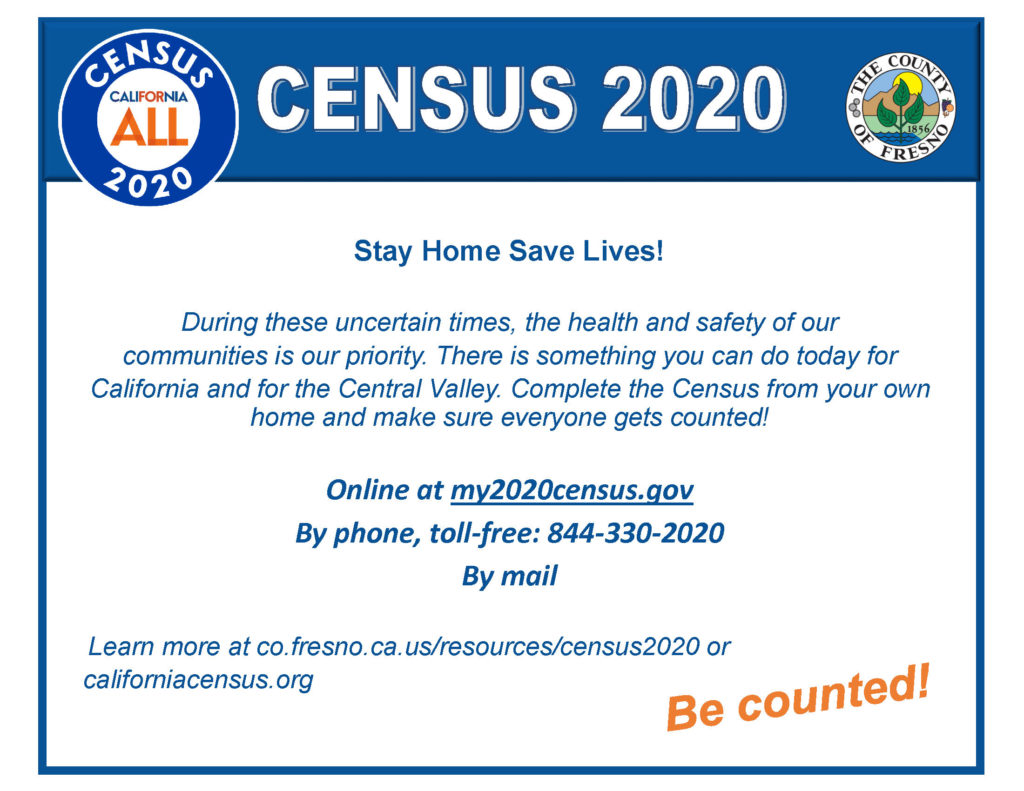
By Saraí Ramos González
Rural communities with large numbers of workers in the food production sector will be disproportionately affected by Covid-19. Many are ineligible to receive government aid, live in remote areas and have preexisting conditions that complicate the Covid-19 virus. Also, they aren’t receiving reliable prevention or resource information due to language barriers.
The Coronavirus Economic Aid, Relief and Security Act (CARES Act) was enacted on March 27 and provides rebates of up to $1,200 for people who earn up to $75,000 a year and double for those who earn $150,000 or more. It also includes an additional increase of $500 for each dependent under the age of 17.
Unfortunately, this relief is only available to workers who have a valid Social Security number and have filed their 2018 or 2019 taxes, leaving out those who are most affected by Covid-19’s impact. It is estimated that 82,000 workers in Fresno County do not have a valid Social Security number; although many of these workers make up the essential food-sector workforce, they will not receive any support.
This flawed relief initiative will add on to food-sector workers’ list of continuous exclusion of government aid and Covid-19’s list of most affected due to preexisting inaccessibility to healthcare and public services.
Rural communities on the west side of Fresno County are also disproportionately affected by Covid-19 due to the air quality. Fresno and Tulare counties have the worst air quality in the nation, resulting in respiratory illnesses such as asthma, chronic bronchitis and other respiratory health problems, which is a predisposition to complications related to the Covid-19 virus.
Taking this into consideration, one can be wary of the number of cases reported in more remote areas in the Central Valley. According to Fresno County’s Health Department’s epidemiology program, the city of Fresno has the most cases of people being affected by Covid-19 in the county.
As of April 18, of the 315 total cases in Fresno County, more than 160 were in the city of Fresno. However, such data might be due to the lack of viable tests and testing facilities located in the neighboring rural cities. See https://cofgisonline.maps.arcgis.com/apps/MapSeries/index.html?appid=1f82e8eb24c0403c90e774202c5dafea.
Rural communities are substantially farther from their nearest emergency care facilities that are equipped for testing and care. Residents in areas such as San Joaquin and Huron are 30–50 miles from the nearest emergency care facility, and tests in these areas are inaccessible unless persons already have the symptoms.
Tests aren’t the only obstacle for indigenous essential workers. Important information regarding Covid-19 is not available in their language. In Fresno County, there are an estimated 8,000 individuals who speak Mixteco, Triqui or Zapoteco (indegenous languages from Oaxaca, Mexico) and make up a large part of the food-sector workforce.
Government agencies and different organizations have periodically shared information about the Covid-19 protocol, tests, updates and available resources. However, the information has not been translated into the indigenous languages most of them speak, leaving them out of the loop of important updates and at increasing risk of being affected by Covid-19.
There are also physical barriers: Many field laborers and packing house workers find it impossible to maintain the social distance recommended by government agencies due to their living arrangements. It is not uncommon for these workers to live in homes with multiple families. Sometimes more than three families will live in a single house, which makes staying six feet apart physically impossible.
These same workers, typically due to their low income, cannot afford to miss a day of work, even if they feel sick or are worried about their co-workers being sick. They also worry about the lack of proper work conditions given the recommendations by government officials. For example, some employers do not comply with the demands of
the public health department and do not have adequate handwashing stations, nor do they enforce that workers stay six feet away from each other.
Although there have been standards implemented to prevent occupational exposure at the workplace by Cal/OSHA, accountability and enforcement is unclear. It is also difficult for workers who would like to place a workplace violation but are neither English nor Spanish speakers and require adequate and timely indigenous language interpretation.
Federal, state and local governments have demonstrated their incompetence to care for their most vulnerable populations, even though they keep our communities fed while risking their own health. And even though the governor has announced aid for workers without a Social Security number, the process of receiving the funds is flawed and monetary aid is limited.
Without much help to turn to and the lack of translation of essential materials regarding their care and resources, many essential workers are left in the dark, feeling unsupported.

City, County, State and Representative Support
The City of Fresno’s Web site clearly demonstrates the importance of Covid-19 to the administration and elected officials. It opens with a prominent red banner with a special notice followed by Covid-19 updates and links to important information for city residents. The Governor’s Executive Order and various implementing City of Fresno ordinances can be found there. See https://www.fresno.gov/.
The County of Fresno also provides extensive information, including data regarding the number of cases and charts showing statistical analysis based on age, gender, race and geographic distribution. It is updated frequently throughout the day.
The Data and Surveillance Dashboard provides helpful details regarding distribution, but there is no information or specific guidance for rural communities. There is only one paragraph addressing the requirement for agricultural employers to comply with safety and health guidelines. There is no mechanism provided for complaints or enforcement procedures and consequences.
A review of state and federal elected officials reflects different levels of engagement and action. For example,
State Senator Anna Caballero (D–Salinas) reached out and held a conference call with the Central Valley Leadership Round Table, a group composed in part of elected officials in Firebaugh, Mendota, Kerman, San Joaquin, Huron and Raisin City.
She recently held a town hall via conference call with community representatives, Spanish-speaking physicians and health service experts. Caballero showed sensitivity to the Spanish-speaking community and promised to take action on behalf of all her constituents.
Rep. TJ Cox (D–Fresno) scheduled a town hall for April 25. He also has been active in authoring and co-sponsoring important legislation in response to Covid-19:
- HR 6437, Coronavirus Immigrant Families Protection Act, to provide service “regardless of immigration status or limited English.”
- HR 6348, “To allow 2020 recovery rebates to be made on the basis of an individual’s taxpayer identification number.” This would include individuals who are currently excluded.
- HR 6525, To provide Federal support so States can reopen their economies after infection and transfer rates have gone down and adequate testing and other safeguards are in place.
Cox has presented letters to the Department of Health and Human Services in support of rural healthcare facilities (April 10) and the Office of Rural Affairs in support of rural small businesses (April 14). See https://cox.house.gov/media/press-releases.
Rep. Jim Costa (D–Fresno) has not been listed as a co-sponsor for the prior cited bills. However, Costa did sign on to the letters in support of rural healthcare facilities and rural small businesses. He also held a town hall on March 31.
Costa also signed a letter on behalf of the Congressional Hispanic Caucus (CHC) on April 15 that called for protection and financial assistance for farmworkers to slow the spread of the coronavirus pandemic. Although references to “undocumented” are not found, it is clear in the wording and context. It is meant to “provide farmworkers with job security, pandemic premium pay…sick pay, and family leave.”
The CHC letter also asks that the measures it contains remain in effect, “Until the bipartisan Farm Workforce Modernization Act (HR 5038) can become law, provide the essential agricultural workforce with legal protections from deportation.” This act was authored by Rep. Zoe Lofgren (D–San Jose) and has more than 62 Democratic and Republican sponsors.
HR 5038 presents the strongest protections for undocumented farmworkers to date and could potentially supplant the H2A Temporary Worker program. It was filed in the Senate on Dec. 12, 2019, and would provide regulations and procedures for “Temporary Status for Certified Agricultural Workers.” Applicants who would otherwise be considered inadmissible or deportable would have to demonstrate 180 workdays during the two-year period preceding the introduction of the Act.
Rep. Devin Nunes (R–Tulare), according to his Web site, has no Covid-19 sponsored or co-sponsored bills and only one reference to a Fox News clip where he stresses the need for the country to return to work. Although he admits the need for testing, he only suggests testing for persons who are infected.
Nunes wrote Agriculture Secretary Sonny Perdue and asked for increased support for dairy farmers, most of whom were already going bankrupt due to changes in consumer choices and a market glut. Nunes also joins President Donald Trump in blaming China and the World Health Organization for the pandemic.
*****
Saraí Ramos Gonzalez is a 22-year-old Mixteca from Farmersville. She recently received a B.A. in Chicano studies. She is currently a community worker for a community-based organization in Fresno.
Advertising



